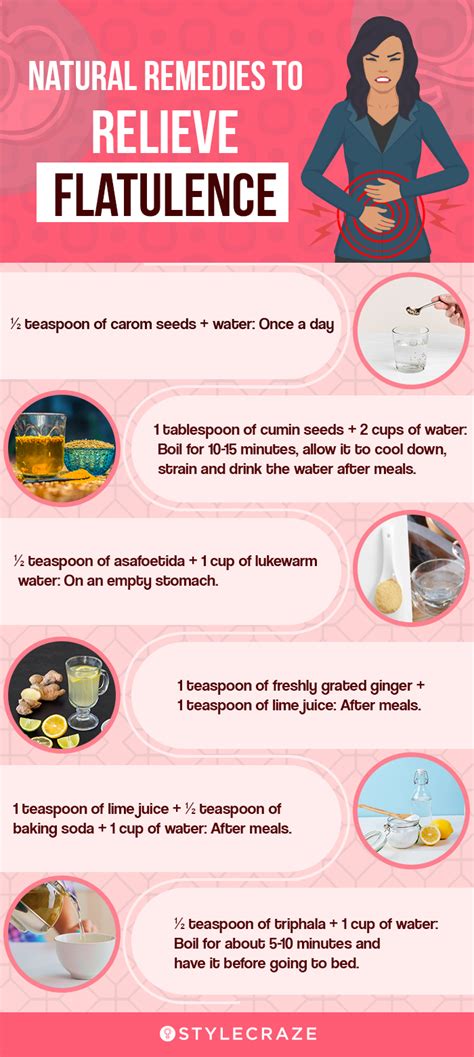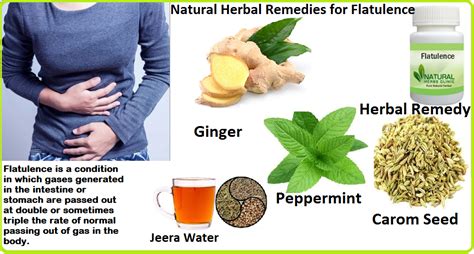Intro
Reduce bloating and discomfort with these 5 ways to reduce flatulence, featuring digestive tips and natural remedies to alleviate gas, including diet changes and probiotics to improve gut health.
Passing gas, or flatulence, is a natural bodily function that can be embarrassing and uncomfortable for many people. While it's a normal part of digestion, excessive flatulence can be a sign of an underlying issue, such as a food intolerance or digestive disorder. Fortunately, there are several ways to reduce flatulence and alleviate discomfort. In this article, we'll explore the importance of managing flatulence, its causes, and provide practical tips on how to reduce it.
Flatulence is a common issue that affects people of all ages, with some experiencing it more frequently than others. It's estimated that the average person passes gas around 10-20 times per day, with most of it being odorless. However, when gas is accompanied by a strong smell, it can be embarrassing and affect a person's self-confidence. Moreover, excessive flatulence can be a sign of an underlying health issue, such as irritable bowel syndrome (IBS), celiac disease, or lactose intolerance.
Managing flatulence is crucial for maintaining good digestive health and overall well-being. By understanding the causes of flatulence and taking steps to reduce it, individuals can alleviate discomfort, improve their quality of life, and reduce the risk of developing more serious health issues. In the following sections, we'll delve into the world of flatulence, exploring its causes, symptoms, and most importantly, ways to reduce it.
Understanding Flatulence

Causes of Flatulence
The causes of flatulence can be divided into three main categories: dietary, digestive, and medical. Dietary causes include consuming gas-producing foods, such as beans, cabbage, and broccoli, as well as drinking carbonated beverages. Digestive causes include an imbalance of gut bacteria, slow digestion, and malabsorption of nutrients. Medical causes include conditions such as IBS, celiac disease, and lactose intolerance.5 Ways to Reduce Flatulence

- Eat smaller, more frequent meals to reduce symptoms of bloating and discomfort
- Avoid gas-producing foods, such as beans, cabbage, and broccoli
- Incorporate probiotics into your diet to promote a healthy balance of gut bacteria
- Stay hydrated by drinking plenty of water to help prevent constipation
- Avoid chewing gum and drinking carbonated beverages to reduce swallowing air
Dietary Changes
Dietary changes play a crucial role in reducing flatulence. By avoiding gas-producing foods and incorporating probiotics into your diet, individuals can alleviate symptoms of bloating and discomfort. Additionally, eating smaller, more frequent meals can help reduce the amount of gas produced in the digestive system.Natural Remedies for Flatulence

- Peppermint oil: Peppermint oil has natural anti-inflammatory properties that can help soothe the digestive system and reduce symptoms of bloating and discomfort.
- Ginger: Ginger has natural anti-inflammatory properties that can help reduce inflammation in the digestive system and alleviate symptoms of flatulence.
- Activated charcoal: Activated charcoal can help absorb gas in the digestive system, reducing symptoms of bloating and discomfort.
- Probiotics: Probiotics can help promote a healthy balance of gut bacteria, reducing symptoms of flatulence and improving overall digestive health.
Probiotics and Flatulence
Probiotics play a crucial role in reducing flatulence by promoting a healthy balance of gut bacteria. By incorporating probiotics into your diet, individuals can alleviate symptoms of bloating and discomfort, improve their overall digestive health, and reduce the risk of developing more serious health issues.Lifestyle Modifications

- Exercising regularly: Regular exercise can help improve digestion, reduce symptoms of bloating and discomfort, and promote overall health and well-being.
- Managing stress: Stress can exacerbate symptoms of flatulence, so finding healthy ways to manage stress, such as meditation or deep breathing, can help alleviate discomfort.
- Getting enough sleep: Getting enough sleep is essential for maintaining good digestive health and reducing symptoms of flatulence.
Exercise and Flatulence
Exercise plays a crucial role in reducing flatulence by improving digestion, reducing symptoms of bloating and discomfort, and promoting overall health and well-being. Regular exercise can help stimulate the digestive system, improve gut motility, and reduce the risk of developing more serious health issues.Conclusion and Final Thoughts

We hope this article has provided you with valuable insights and practical tips on how to reduce flatulence. If you have any questions or comments, please don't hesitate to share them below. Additionally, if you found this article helpful, please share it with your friends and family to help spread awareness about the importance of managing flatulence.
What are the most common causes of flatulence?
+The most common causes of flatulence include swallowing air, eating gas-producing foods, and having an imbalance of gut bacteria. Additionally, certain medical conditions, such as gastroesophageal reflux disease (GERD), can also contribute to excessive flatulence.
How can I reduce flatulence naturally?
+There are several natural remedies that can help reduce flatulence, including peppermint oil, ginger, activated charcoal, and probiotics. Additionally, making dietary changes, such as avoiding gas-producing foods and incorporating probiotics into your diet, can also help alleviate symptoms of flatulence.
Can exercise help reduce flatulence?
+Yes, exercise can help reduce flatulence by improving digestion, reducing symptoms of bloating and discomfort, and promoting overall health and well-being. Regular exercise can help stimulate the digestive system, improve gut motility, and reduce the risk of developing more serious health issues.
